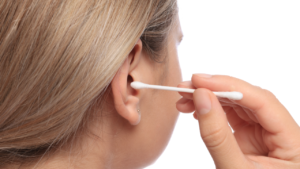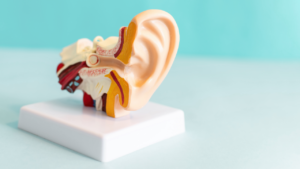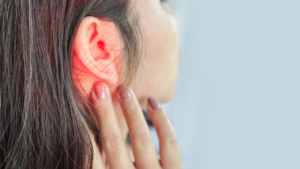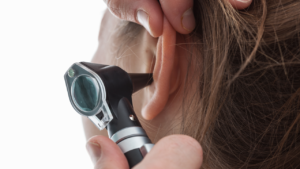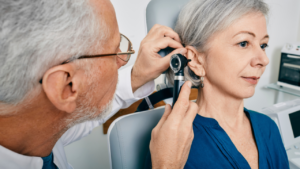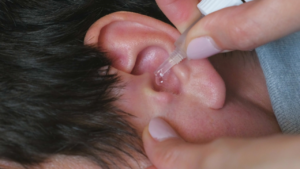
Have you ever wondered if it’s safe to put olive oil in your ear? In this article, we will explore the benefits of using olive oil for ear care, as well as what can happen if you use too much. From ear blockages to skin irritation and allergic reactions, we will cover the potential risks. We will provide alternative options for ear care, such as mineral oil, coconut oil, garlic oil, and hydrogen peroxide. Stay tuned to learn how to properly use olive oil in your ear for optimal results.
Key Takeaways:
- Putting too much olive oil in your ear can have negative consequences, such as ear blockage, skin irritation, and allergic reactions.
- Alternative oils like mineral oil, coconut oil, garlic oil, and hydrogen peroxide can be used for ear care instead of olive oil.
- To properly use olive oil in your ear, warm the oil, use a dropper, lie down on your side, allow the oil to sit, and then drain it out.
Can You Put Olive Oil In Your Ear?
Putting olive oil in your ear is a common practice that has been used for various purposes, including earwax removal and potential health benefits.
Not only is olive oil easily accessible and cost-effective, but it also contains properties that can help soften earwax, making it easier to remove. Some studies suggest that the anti-inflammatory and antimicrobial properties of olive oil can aid in relieving ear pain and fighting off infections.
Incorporating olive oil into your aural care routine may contribute to overall health by moisturizing the ear canal and reducing the risk of dryness and irritation. It is important to note, however, that while olive oil is generally safe for most individuals, consulting with a healthcare professional is recommended, especially if you have a history of ear issues or are prone to allergies.
What Are The Benefits Of Putting Olive Oil In Your Ear?
The benefits of putting olive oil in your ear extend to its potential effectiveness in softening earwax, lubricating the ear canal, and promoting overall ear health.
Using olive oil for ear care can also help in reducing the risk of ear infections due to its antimicrobial properties. The gentle nature of olive oil makes it a preferred choice for individuals with sensitive ears or those prone to ear irritation. Its natural components can soothe discomfort, aid in the removal of excess earwax, and maintain the ear’s natural moisture balance, preventing dryness and itchiness. Regular application of olive oil can contribute to a healthier, cleaner auditory system overall.
What Happens If You Put Too Much Olive Oil In Your Ear?
Putting too much olive oil in your ear can lead to potential risks and side effects that may require medical advice or intervention to address.
Excessive use of olive oil in the ear can result in various complications, such as occlusion of the ear canal, leading to impaired hearing or discomfort. The oil may attract dirt and debris, increasing the risk of ear infections.
It is crucial to understand that improper ear irrigation techniques or prolonged use of olive oil can contribute to the development of otitis externa, commonly known as swimmer’s ear, characterized by pain, inflammation, and possible drainage from the ear.
Seeking professional guidance from a healthcare provider is vital if you experience worsening symptoms, prolonged pain, drainage, or difficulty hearing after using olive oil in your ear.
Can Cause Ear Blockage
Excessive olive oil in the ear can contribute to ear blockage by potentially worsening existing earwax plugs or causing new blockages.
When olive oil is used excessively for ear cleaning, it can alter the natural pH balance of the ear canal, leading to the disruption of the delicate mechanism responsible for removing earwax. This alteration may result in the earwax becoming hardened, forming plugs that obstruct the ear canal and impair hearing. The excessive oil can attract dirt and debris, further exacerbating the blockage.
To safely remove earwax plugs, individuals can utilise gentle methods such as ear drops that soften the wax, irrigation with warm water, or seeking assistance from a healthcare professional for careful removal. It is crucial to avoid inserting objects like cotton buds into the ear, as they can push the wax deeper or cause injury to the ear canal, worsening the blockage.
Can Irritate The Skin
Excessive olive oil application in the ear can irritate the delicate skin in the ear canal, potentially leading to inflammation or discomfort.
When the ear skin is exposed to excessive amounts of olive oil, the natural balance of the skin may be disrupted, causing irritation and redness. This irritation can progress to inflammation, making the ear canal more susceptible to infections.
To avoid skin-related issues, it is essential to use olive oil in moderation for ear care. Opt for only a few drops and ensure the oil is at room temperature before application. Consult with a healthcare professional if you experience persistent discomfort or inflammation in the ear.
Can Cause Allergic Reactions
Overusing olive oil in the ear may trigger allergic reactions in some individuals, highlighting the importance of considering safety measures and beneficial properties.
While olive oil is often hailed for its potential to soften earwax, reduce ear inflammation, and exhibit antimicrobial properties, it is crucial to remember that excessive use can lead to adverse effects.
Allergic responses may manifest as itching, redness, swelling, or even ear infections, underscoring the necessity of moderation and awareness. If an allergic reaction occurs, seeking medical advice promptly is vital to prevent further complications. Individuals prone to allergies should perform a patch test before applying olive oil inside the ear to mitigate potential risks.
Can Lead To Infection
Excessive olive oil in the ear can create a conducive environment for bacterial growth, increasing the risk of infection if proper precautions are not taken.
Bacterial growth thrives in warm, moist environments, making the ear a prime target. The accumulation of olive oil can compromise the natural balance of the ear canal, disrupting its self-cleaning mechanism. As a result, bacteria can multiply rapidly, leading to painful infections.
To prevent such risks, it is essential to avoid inserting foreign substances like olive oil deep into the ear canal. Instead, opt for approved ear drops or seek guidance from a healthcare professional for safe ear cleaning practices.
What Are The Alternatives To Olive Oil For Ear Care?
If you are seeking alternatives to olive oil for ear care, consider options such as mineral oil, coconut oil, garlic oil, and hydrogen peroxide for effective ear maintenance.
Other, more invasive methods, include ear irrigation and micro-suction.
Mineral oil is a gentle option that can help soften earwax, making it easier to remove without irritation. Coconut oil possesses natural antimicrobial properties that can aid in keeping the ear free from harmful bacteria and fungi. Garlic oil, known for its antimicrobial and antifungal properties, may assist in relieving ear infections and reducing inflammation.
Hydrogen peroxide, when used in diluted form, can effectively dissolve earwax buildup, allowing for easy removal. It is crucial to use these oils and solutions carefully and consult a healthcare professional if you encounter any issues or persistent symptoms.
Mineral Oil
Mineral oil serves as a practical alternative to olive oil for ear maintenance, offering effectiveness in softening earwax and supporting overall ear health.
Unlike olive oil, mineral oil is a purified form of petroleum that can effectively soften earwax without irritation. The gentle lubricating properties of mineral oil help in loosening stubborn buildup in the ear canal, making it easier for the ear’s natural cleaning mechanisms to remove the softened wax.
Mineral oil creates a protective barrier in the ear canal, preventing excessive dryness and reducing the risk of infections. Regular use of mineral oil can help maintain optimal ear hygiene and minimise the discomfort associated with earwax buildup.
Coconut Oil
Coconut oil offers a natural remedy for ear care, with potential benefits in earwax removal and supporting a natural approach to ear health.
Its properties make it a gentle and effective solution for softening and loosening earwax, which can then be easily removed, aiding in the prevention of blockages or discomfort. The antimicrobial properties of coconut oil help in fighting off potential infections or inflammation in the ear canal. By using coconut oil regularly, one can maintain the ear’s natural balance and moisture levels, promoting overall ear health and reducing the likelihood of issues such as itching or dryness. Coconut oil serves as a versatile and holistic option for caring for one’s ears.
Garlic Oil
Garlic oil presents itself as an alternative for ear care, exhibiting potential in addressing ear infections and providing therapeutic benefits for ear health.
Garlic oil’s antibacterial and antifungal properties make it an effective agent in combatting the pathogens that cause ear infections, offering a natural and gentle remedy for such conditions. When applied topically, it can help reduce inflammation and relieve pain associated with ear discomfort. The anti-inflammatory properties of garlic oil can contribute to alleviating ear congestion and promoting overall ear health. The antimicrobial nature of garlic oil aids in preventing the recurrence of infections, making it a promising choice for individuals seeking a holistic approach to ear care.
Hydrogen Peroxide
Hydrogen peroxide offers a unique approach to ear care, with its ear irrigation properties that can assist in earwax removal and canal maintenance.
When properly diluted, hydrogen peroxide can effectively break down earwax buildup and help clear the ear canal of debris. Its effervescent action can dislodge stubborn earwax, making it easier to remove through gentle irrigation. This gentle yet effective method is commonly recommended by healthcare providers for at-home ear maintenance. The bubbling action of hydrogen peroxide aids in cleaning the ear canal and reducing the risk of infections. Regular use of hydrogen peroxide in ear care routines can help prevent blockages and promote overall ear health.
How To Properly Use Olive Oil In Your Ear?
Properly using olive oil in your ear involves specific steps to ensure its safe and effective application, especially in addressing common ear symptoms.
- First, warm the olive oil to body temperature to prevent discomfort.
- Tilt your head to the side and gently pull the outer ear up and back to straighten the ear canal.
- Using a dropper, place a few drops of olive oil into the ear.
- Stay in that position for 5-10 minutes to allow the oil to penetrate. Remember to keep your head tilted to prevent leakage.
Warm The Oil
Warming the olive oil before application can enhance its properties and improve its effectiveness in addressing ear-related issues, such as earwax build-up.
When olive oil is gently warmed, it becomes more fluid, allowing it to penetrate the ear canal deeply, thereby softening stubborn earwax for easier removal.
This technique is commonly used in the treatment of ear infections as well, as the warm oil can help soothe inflammation and provide relief from pain and discomfort.
The antimicrobial properties of olive oil make it a natural and safe option for managing various ear conditions, promoting healing and preventing potential infections.
Use A Dropper
Using a dropper for olive oil application ensures precise and controlled dosing, facilitating targeted treatment for specific ear pain or discomfort.
In terms of ear remedies, olive oil can be a game-changer. The dropper method allows you to directly target the affected area, ensuring that the oil reaches the necessary spots for relief. This level of precision is crucial, especially for conditions like ear infections or wax build-up. By using a dropper, you can also avoid waste and mess, as every drop counts in delivering the healing properties of olive oil effectively. It makes the application process efficient and improves the chances of a successful treatment outcome.
Lie Down On Your Side
Positioning yourself to lie down on your side facilitates the olive oil’s penetration into the ear canal, aiding in the softening and removal of earwax plugs.
Lying on your side encourages the oil to flow naturally towards the affected ear, allowing it to reach deep within the ear canal. This position not only enhances the effectiveness of the oil but also reduces the risk of spillage or leakage during the application process.
By softening the hardened earwax plugs, the olive oil helps in the gentle and safe expulsion of earwax, promoting better ear hygiene and preventing potential issues caused by compacted earwax. Opting for this method regularly can contribute to maintaining optimal ear health and preventing discomfort associated with earwax accumulation.
Allow The Oil To Sit
Allowing the olive oil to sit in the ear canal for a specified duration enhances its effectiveness in addressing ear issues while ensuring safety during the treatment process.
When olive oil is applied correctly, it softens earwax, making it easier to remove and reducing the risk of injury. Olive oil’s natural properties help break down hardened wax, facilitating its gradual removal from the ear canal.
It is crucial to let the oil sit for at least 5-10 minutes to allow it to penetrate deep into the ear and work its magic. This time allows the oil to loosen the earwax and make it easier to eliminate without causing discomfort.
Opt for extra-virgin olive oil due to its purity and minimal processing, ensuring that you are using a high-quality product for your ear care regimen.
Drain The Oil
Draining the olive oil from the ear, either naturally or with the aid of a cotton wool bud, completes the treatment process and supports effective earwax removal.
When draining the olive oil from the ear, it is crucial to do so gently and patiently to avoid pushing the earwax further into the ear canal. This step is essential in ensuring that the ear is clear of excess oil residue, allowing for better hearing and reduced discomfort. Using a cotton wool bud to carefully soak up the remaining olive oil can help in this process without risking damage to the delicate ear structures. Remember, correct technique is key in maintaining ear health and preventing potential complications.

